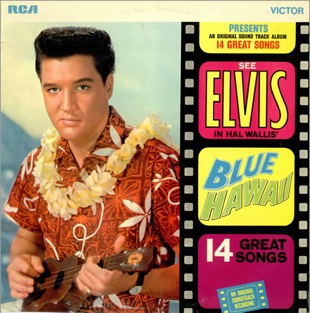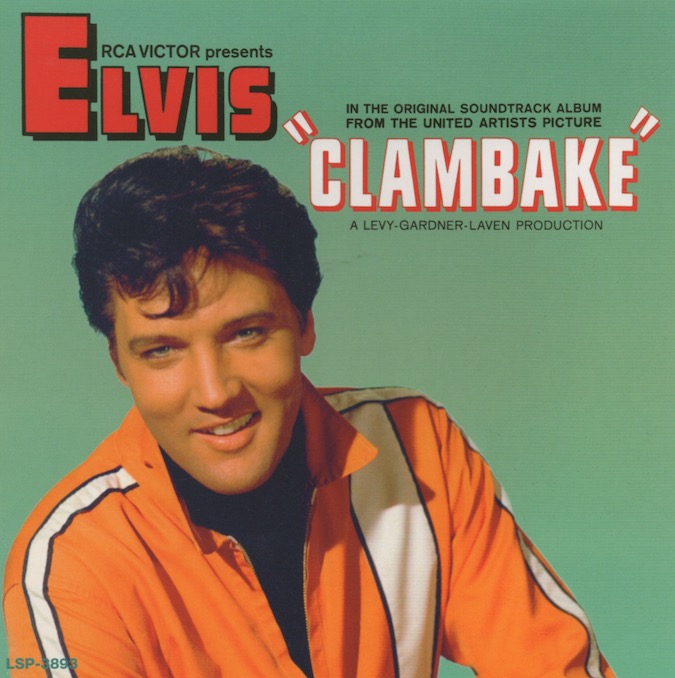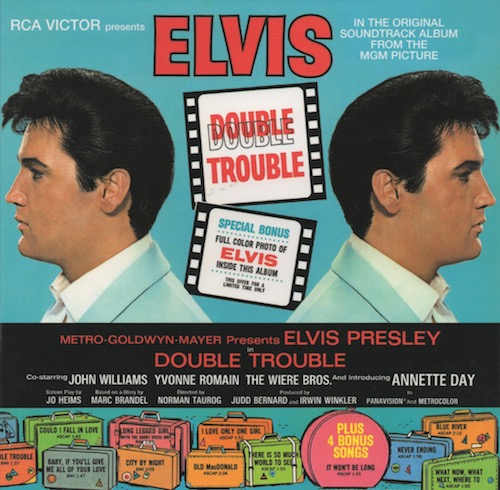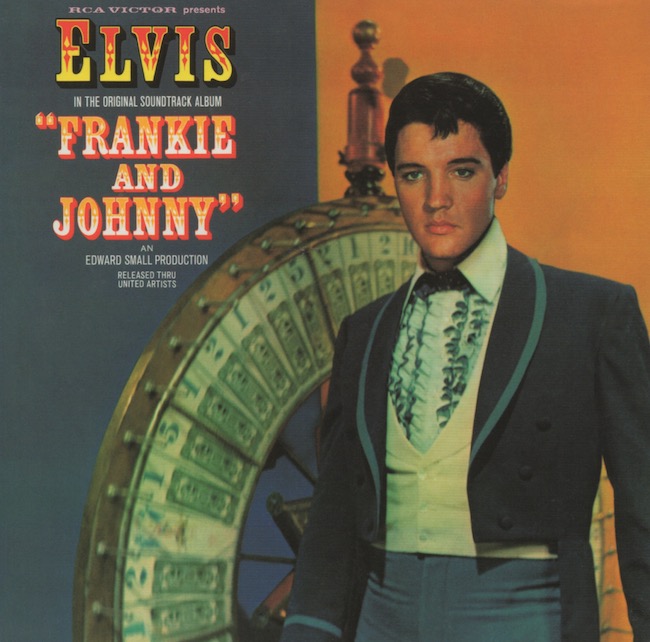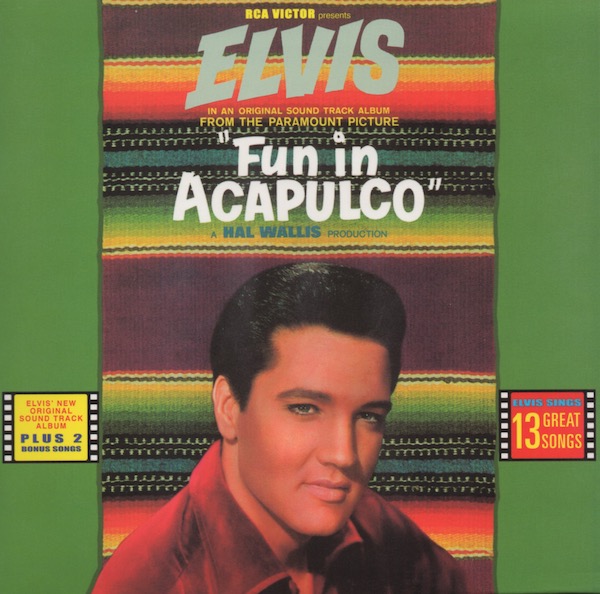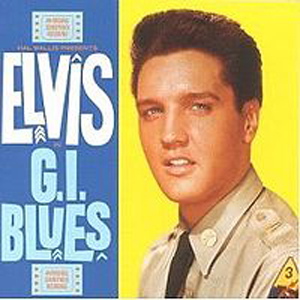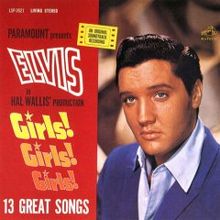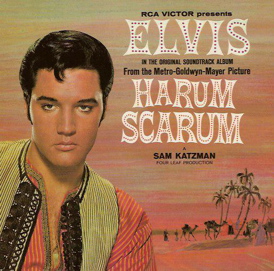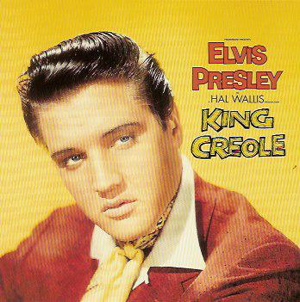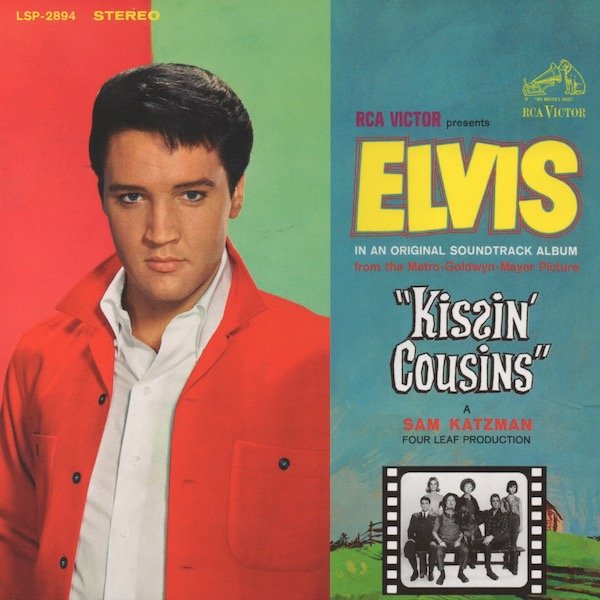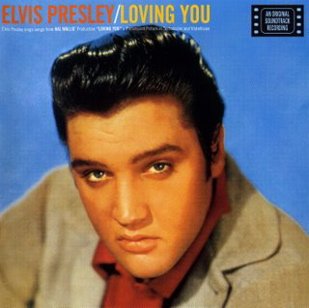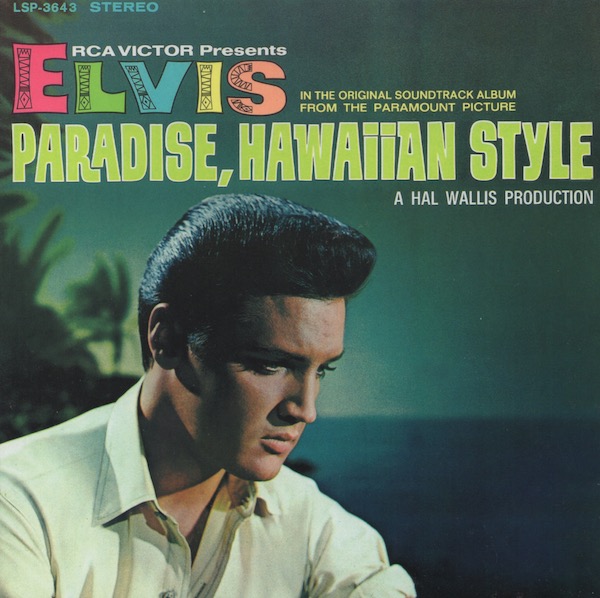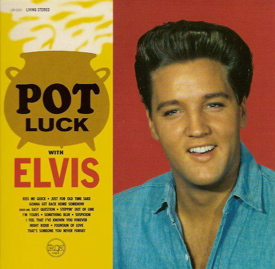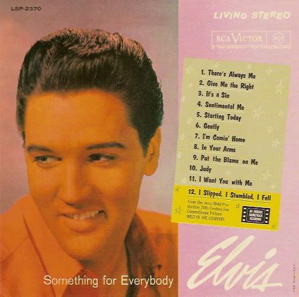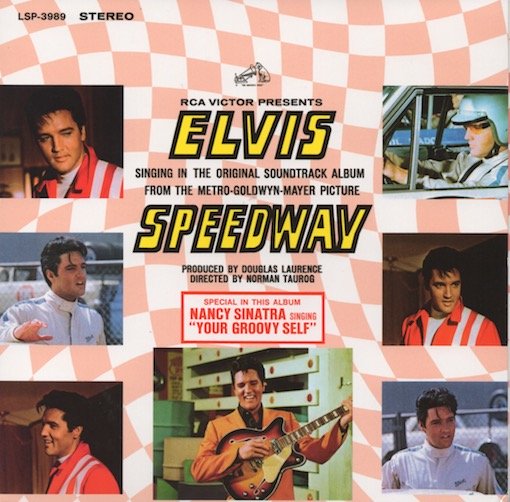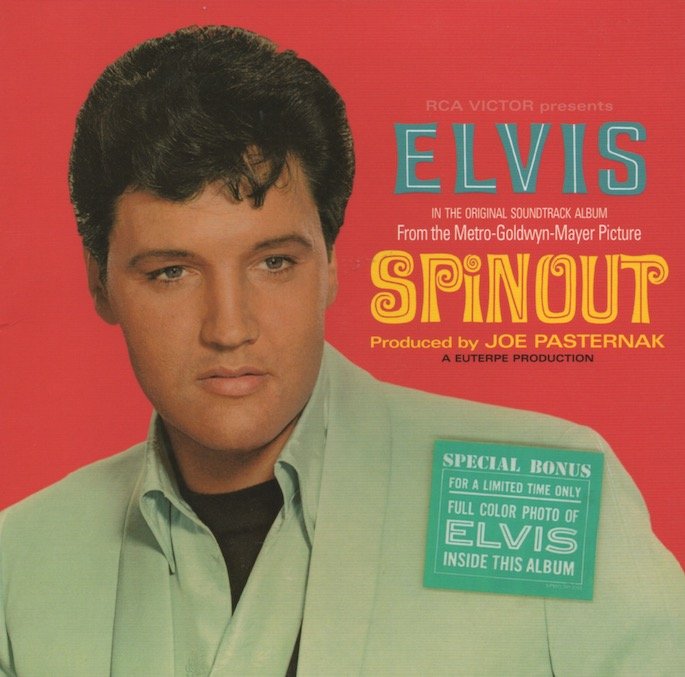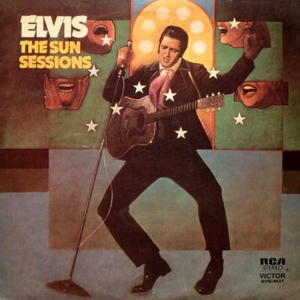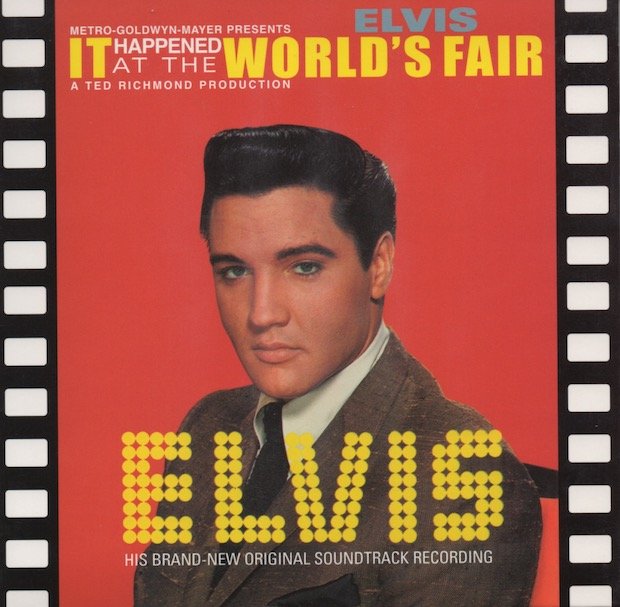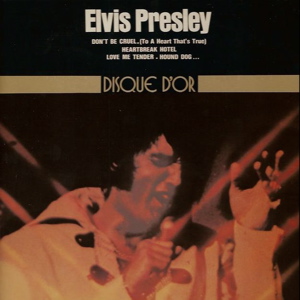Elvis History Blog
Was There a Conspiracy
To Accelerate Elvis' Music?
In the summer of 2016, Rolf Johnsen, a life-long Elvis Presley fan in Norway, contacted me to share his belief that Colonel Parker, RCA, Sony, and others conspired to alter the sound of Presley’s music as it was presented to the public throughout the singer’s career. In short, Rolf theorizes that almost all of Elvis’ recordings, both in studio and on stage, were “speeded up” from the tempo at which they were originally recorded or performed.
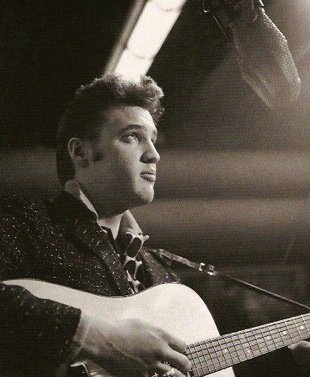
I knew that the tempo of a few Presley’s recordings had been either increased or decreased on record releases, but the charge that it had purposely been done on such a large scale was completely new to me. Initially, I was inclined to dismiss Rolf’s claims as being too fantastic to believe, but his obvious passion about the sound of Elvis’ music convinced me to give him a hearing before making a final judgment.
Rolf presented his evidence to me in a series of emails over the past several months. “I have studied Elvis since I was eight years old in 1956 and all these years forward to the present day,” he explained. “I can assure you what I really wish for is that all of Elvis’ recordings are in the right way, but they are not.”
Using equipment in a private studio in his living room, Rolf can adjust the speed and sound of Presley’s music as issued originally on CDs. His conclusions concerning the speed of the music on those original CDs is remarkable in its range and detail. He states he has remastered several hundred Elvis albums on CD in better sound with corrected speed. He claims to have found that in all of Elvis’s musical catalogue very few of Presley’s studio recordings played at the correct speed when originally issued by RCA.
“First are ‘Treat Me Nice’ and ‘Blue Christmas’ from September 5, 1957, and three songs from the ‘King Creole’ soundtrack. Then all the songs recorded for the ‘How Great Thou Art’ session. Next are the songs recorded in the studio for Elvis’ 1968 TV Special at Western Recorders, Burbank, California. Last are the rehearsal recordings for the movie That’s The Way It Is, at MGM Studios, Culver City, California, July 29, 1970. All other recordings are speeded up in different levels from 1% and up to 11%.”
• Speeded up recordings gave Elvis a lighter voice
Just think about the scope suggested by that final sentence—all the songs on dozens of released Presley LPs and singles throughout his career purposely accelerated on vinyl from their original tempo in studio, according to Rolf. And he traces the up-the-tempo practice all the way back to the beginning at Sun:
“In the ’50s, it is clearly documented that Elvis had thoughts about being a bass singer. When you hear the Sun recordings, and the other recordings from the ’50s, what in hell reminds you that Elvis could be a bass singer? The fact is that Elvis had a deeper and more adult voice at that time, which neither Sam Phillips nor Colonel Parker liked very much. So they speeded up Elvis’ recordings so he became lighter in his voice to produce a better sales product for the public. And it worked. The interest for Elvis’s recordings was massive in the ’50s, and the big Elvis fan family started to grow.”
So Rolf has remastered all of Elvis’ Sun output at what he contends was the original speed at which it was recorded in Sam’s studio. For example, Rolf says the released version of “I Forgot to Remember to Forget” runs 1.7% too fast. “Not much,” he says, “but 1.7% gives a big difference.”
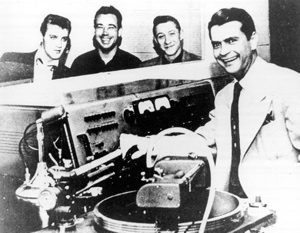
Presley’s voice on “Tomorrow Night,” a Sun recording first released in a heavily overdubbed version on the “Elvis for Everyone” LP in 1965, has long been thought to be a slowed down version of the Sun original. According to Rolf, though, it’s the other way around. “The fact here is that the speed on Elvis’ voice on this overdubbed recording is the right one. It means that the Sun recording was speeded up a little bit by Sam Philips, and fans noticed the difference when they heard the overdubbed song of ‘Tomorrow Night’ for the first time.”
(By the way, the overdubbed version of “Tomorrow Night” is one of my personal favorites among all of Elvis’ music. Whatever they may have done with Elvis’ voice on that one is just fine with me!)
• Elvis’ soundtrack music especially up-speeded
Rolf believes all of Presley’s soundtrack music in the ’60s was brutally victimized by RCA. He calls what was done to Elvis’ movie songs a “scandal.” He explains, “I have remastered all the movie songs in correct speed and much better sound. Before this, I really wouldn’t listen to these songs because Elvis didn’t sound like Elvis. All the DVDs were speeded up 9% except ‘Girl Happy,’ which was speeded up 11%.”
I have to agree that Elvis’ voice sounds unnatural on most of the tracks on the original Girl Happy soundtrack LP. It’s long been known that the tempo of the title song was considerably increased, undoubtedly because MGM wanted a much faster tune for the film’s opening number. It’s reasonable to assume they might also have messed with the sound of other songs in the film.
Even Elvis’ recorded concerts weren’t fast enough for RCA vinyl, according to Rolf. “All are heavily speeded up. Had they speeded up all the shows with, let us say, 3%, it would have been acceptable, but the speed on these releases goes from 3.7% up to 12%. I can’t understand why they did this, when all these audience concerts are really very good in the correct speed.”
• Question: “Who would want to speed up Elvis’ music?”
I didn’t have to ask Rolf who he thought was responsible for putting the gas pedal to Elvis’ music. He pointed out the culprit multiple times. “Parker had everything to do with altering Elvis’ recordings,” Rolf maintains. “Parker had incredible power over Elvis’ singing career. It seems that Elvis had very little to say about Parker’s strange decisions … Thanks to Colonel Parker, the fans have no longer the possibility to hear most of Elvis’ recordings in the correct speed. It’s a shame, because Elvis sounds much better when you hear him sing his songs at the correct speed.”
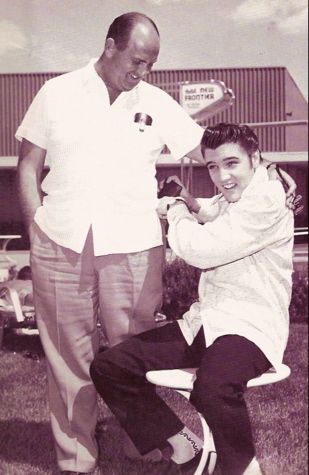
I had to challenge Rolf over his assertion that Colonel Parker had so much control over Elvis’ music. Nowhere did he provide proof that Parker was behind the accelerating of Elvis’ recordings prior to release. It’s known that Parker often complained that Elvis’ voice was being overwhelmed by the Jordanaires, but I’ve never read anywhere that he actually had the power to interfere with RCA’s sound production on Elvis’ records. Such a charge would require substantial evidence to support it.
• Question: “Why would anyone want to speed up Elvis’ music?”
Rolf asserts that speeding up recordings for release was a strategy used for many young rock ’n’ roll singers in the ’50s and ’60s:
“It was very usual in the ’50s that singers were speeded up a little so they would sound somewhat younger in their voices so it would sell better among the younger buyers. With artists like Little Eva, Tommy Steel, Little Richard, Jerry Lee Lewis, all of their recordings were speeded up before release. Even the early recordings by The Beatles and The Rolling Stones were speeded up.”
In Elvis’ case, Rolf believes, as noted earlier, that in the ’50s both Sam Phillips and Colonel Parker sought to make Presley’s naturally deep singing voice sound higher by speeding up the tempo of his studio recordings. Rolf doesn’t understand, however, why Parker and RCA continued the speed-up strategy throughout Elvis’ career.
“Personally I think they did it wrong. I believe that if they had presented Elvis in his true and original voice, he would have been even more popular throughout the years, because you would have heard more of his personality in his voice and in his recorded songs.”
• Speed up theory raises interest & skepticism
So, what’s to be made of Rolf Johnsen’s theory that Colonel Parker, RCA, Sony, and others conspired to secretly and purposely increase the tempo of Elvis Presley’s recordings prior to public release? Rolf is certainly very passionate about his belief that it happened, and Elvis fans are known for being passionate about issues concerning their idol. So, although I’m skeptical overall of Rolf’s theory, I believe it’s a very interesting hypothesis and possibly true at some level.
As a self-styled “Elvis historian,” however, I require a certain level of proof before believing anything about him or his music. For instance, Rolf provides specific percentages on how much various Presley songs were speeded up. However, to determine whether or not the pace of a particular recording had been increased, you would have to know the speed of the original recording. As that relates to live stage recordings, Rolf may have access to original tape recordings made by audience members. But the only way he would know the exact speed of all of Elvis’ studio recordings would be if he had access to the original tapes, which he does not profess to have. In fact, Rolf believes that nearly all of the Presley studio outtakes issued on the FTD label in recent years are also raced up.
Rolf cites an experiment in which he asked 20 or so friends and family to pick their favorite from among five different versions of Elvis songs played at different speeds. They all picked slower versions over the originally released recordings. It’s what’s called “anecdotal evidence.” But just because they all picked the same version out of a lineup is not indisputable evidence that hundreds of Elvis’ recordings were speeded up.
• Listening to the evidence
Before making a final personal judgment, though, I needed to hear what Rolf was hearing, so I took him up on his offer to send me copies of some Elvis albums he had remastered at their slower, “original” speed. He sent me a set of CDs representative of Elvis’ studio recordings from the fifties and sixties, as well as concerts in the seventies. (Note: Rolf is not trying to market the Elvis music he has remastered. All of the CDs he sent me are prominently labeled “Not for Sale.”)
At first, Elvis’ voice sounded a bit odd on Rolf’s decelerated versions, but after listening to his CDs exclusively for awhile, I stopped noticing that the recordings had been slowed down a bit. They began to sound perfectly natural to me. In the end, I preferred some of Rolf’s “corrected” recordings over the originals, the Girl Happy soundtrack being one in particular. However, on other songs, I still prefer them they way I originally heard them on RCA’s record releases.
Ultimately, how every Elvis fan listens to his music is a matter of personal taste. There are the purists who want to hear the sound exactly as it was produced in the studio, while others, perhaps the majority, favor how they first heard his songs on records with all the overdubbing added. Then we have the wide variety of revised versions of Presley recordings created through the years, including alternate takes, patched duets, DJ remixes, and, most recently, “Elvis Presley with the Royal Philharmonic Orchestra.”
Whether or not his theory proves to be correct, Rolf Johnsen’s remastered slower versions provide another way of hearing the King’s music for those of us interested in some variety after listening to the released versions thousands of times through the years. — Alan Hanson | © December 2015
Reader Comment: Enjoyed your article on Presley's recordings and how his voice was speeded up. The way to figure this out is to tune a guitar to A, find the key to a given song and see if one can play to the record with the guitar in that key. If it is off it was sped up. If one could get a monophonic passage like a lead solo then maybe an analyzer would tell if the recording is in the proper key or if it was speeded up or slowed down. — Rick | October 2016
Reader Comment: This is some years down the line from this original article, and I do not know if anything else on this subject has come out. I googled Elvis Speeded Up after playing a 1980 vinyl copy of “Loving You” and then coming down to my living room to continue listening to it on the 1997 CD. To me, “Have I Told You Lately” was markedly brighter on vinyl than the one I was listening to on CD. In fact, that brighter version seems to be the one etched into my memory. So what was up?
And here is this topic. I am not especially surprised at the notion of recorded music being speeded up, and I am sure that some markets prefer certain sounds over others. I have an Italian copy of “Jailhouse Rock,” which is very brisk — or perhaps these are simply mistakes in sloppy mastering, or malfunctioning tape machines, and so was in no way systematic.
This is at a new level, though. A conspiracy to speed up all the records? A decade ago I began ‘ripping’ my Elvis vinyl, and I then had the opportunity to hear what is possible by slowing down or speeding up the recordings. Simply adding one percent to the speed of a song like “Peace In the Valley” makes it brighter, yes, but hardly enough to prick up one’s ears in suspicion. Adding three percent or more, however, is a different story. That really is noticeable and it sounds rushed and ‘wrong.’ And yet this chap claims that some recordings were sped up as much as 11 percent? How slow must the original have been? Based on this I am very skeptical of these claims.
I was very happy to read the warm words about the 1965 version of “Tomorrow Night.” I too love this track — it is magical. I first heard it on the 1980 RCA International copy of “Elvis For Everyone.” That is the one I am used to. Imagine my dismay to hear that on the UK 1965 original it is slower! (As it is on many CDs.) This was one occasion when I did speed up my recording of the 1965 mono version to match the 1980 version.
So, yes, these things happened but whether by accident or design, we may never know. It is definitely a matter of taste how you like to hear Elvis. I found the idea of the soundtrack recordings being speeded up more credible. We know this to be true with “Girl Happy” and we also have the opposite situation of “City By Night” being slowed down. So indeed there is something in it. I have no trouble believing that Elvis didn’t much care about those recordings as finished products. We know from his own record collection that he hardly listened to own music. — Jim TT | June 2021
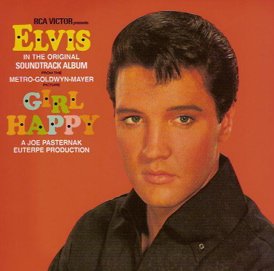
"Just think about the scope … all the songs on dozens of released Presley LPs and singles throughout his career purposely accelerated on vinyl from their original tempo in studio, according to Rolf. And he traces the up-the-tempo practice all the way back to the beginning at Sun."
